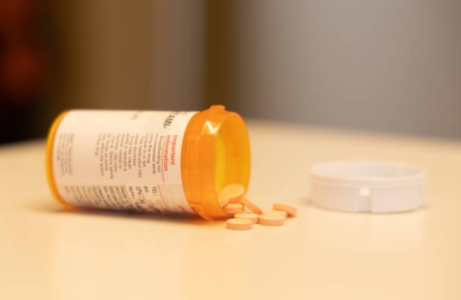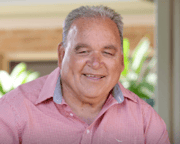New decision lets doctors prescribe life-changing medication
By
- Replies 3
If you or someone close to you deals with attention or focus-related challenges, recent changes could bring significant relief and open up new options for care and support.
Described by many as a major step forward, the update will allow certain healthcare providers to take on a bigger role, reducing the hurdles that often make ongoing treatment difficult and costly.
For years, getting an ADHD diagnosis and ongoing treatment in Australia has been a marathon, not a sprint.
Many families have faced months-long waitlists just to see a specialist, and the costs can be eye-watering—think $500 for a single psychiatrist appointment, with ongoing reviews every few months.
For some, the total bill for assessments and diagnosis can climb to $5,000 or more. And that’s before you even factor in the cost of medication itself!
But now, thanks to new reforms rolling out in NSW (and already in place in Queensland, with Western Australia considering similar changes), the process is about to get a whole lot simpler.
ADHD treatment in NSW will soon become more accessible with several key changes.
People with an existing diagnosis and a stable medication plan can get ongoing prescriptions directly from their GP, removing the need for frequent specialist visits.
In addition, a selected group of GPs will receive special training funded by NSW Health, allowing them to diagnose ADHD and begin treatment.
About 1,000 GPs will start this training in the coming months.
This shift comes with a strong focus on safety and quality, with all participating GPs required to complete thorough training in current best practices.
Dr Rebekah Hoffman, NSW chair of the Royal Australian College of GPs, says the change will make care more timely and affordable, having 'life-changing impacts for thousands of families'.
She points out that GPs in countries like Canada and the UK have been safely prescribing ADHD medications for years, and Queensland GPs have been doing so since 2017.
NSW Premier Chris Minns agrees, saying the reforms will 'remove red tape and break the cycle of what can be a years-long wait for a life-altering diagnosis.'
For children especially, early diagnosis and treatment can make a world of difference—helping them academically and socially thrive.
Mental Health Minister Rose Jackson adds that the changes will be significant for families in regional and rural areas, where specialist appointments can mean years on a waitlist or hours of travel just to see a paediatrician.
'For kids and families dealing with ADHD, the difference between getting help now and waiting years can be life-changing,' she says.
ADHD (Attention Deficit Hyperactivity Disorder) is a developmental disorder that usually starts in early childhood.
It can affect a person’s ability to manage time and balance responsibilities and sometimes lead to hyper-focusing on certain tasks.
More than one million Australians—about one in every 20 people—live with ADHD.
Without proper diagnosis and treatment, ADHD can make everyday life much harder, impacting everything from school and work to relationships and self-esteem.
That’s why making treatment more accessible is such a positive step.
If you’re in NSW and already have an ADHD diagnosis, you’ll soon be able to get your medication scripts from your GP, saving you time, money, and hassle.
If you’re seeking a diagnosis, keep an eye out for GPs who have completed the new training and can help you get started on the right treatment.
And if you’re in another state, don’t worry—these changes are already in place in Queensland and are being considered in Western Australia, so hopefully, the rest of the country won’t be far behind.
In other news, at age 71, Jean Ward received a diagnosis of severe ADHD, helping her embrace self-acceptance and make sense of past struggles.
The idea first came from her partner Derek, a retired GP, who recognised the signs after reading an article about someone with the condition. You can read more about it here.

What do you think of these changes? Have you struggled with long waitlists or high costs for ADHD care? Do you think GPs should be able to prescribe and diagnose ADHD? Share your thoughts and stories in the comments below—we’d love to hear from you!
Described by many as a major step forward, the update will allow certain healthcare providers to take on a bigger role, reducing the hurdles that often make ongoing treatment difficult and costly.
For years, getting an ADHD diagnosis and ongoing treatment in Australia has been a marathon, not a sprint.
Many families have faced months-long waitlists just to see a specialist, and the costs can be eye-watering—think $500 for a single psychiatrist appointment, with ongoing reviews every few months.
For some, the total bill for assessments and diagnosis can climb to $5,000 or more. And that’s before you even factor in the cost of medication itself!
But now, thanks to new reforms rolling out in NSW (and already in place in Queensland, with Western Australia considering similar changes), the process is about to get a whole lot simpler.
ADHD treatment in NSW will soon become more accessible with several key changes.
People with an existing diagnosis and a stable medication plan can get ongoing prescriptions directly from their GP, removing the need for frequent specialist visits.
In addition, a selected group of GPs will receive special training funded by NSW Health, allowing them to diagnose ADHD and begin treatment.
About 1,000 GPs will start this training in the coming months.
This shift comes with a strong focus on safety and quality, with all participating GPs required to complete thorough training in current best practices.
Dr Rebekah Hoffman, NSW chair of the Royal Australian College of GPs, says the change will make care more timely and affordable, having 'life-changing impacts for thousands of families'.
She points out that GPs in countries like Canada and the UK have been safely prescribing ADHD medications for years, and Queensland GPs have been doing so since 2017.
For children especially, early diagnosis and treatment can make a world of difference—helping them academically and socially thrive.
Mental Health Minister Rose Jackson adds that the changes will be significant for families in regional and rural areas, where specialist appointments can mean years on a waitlist or hours of travel just to see a paediatrician.
'For kids and families dealing with ADHD, the difference between getting help now and waiting years can be life-changing,' she says.
ADHD (Attention Deficit Hyperactivity Disorder) is a developmental disorder that usually starts in early childhood.
More than one million Australians—about one in every 20 people—live with ADHD.
Without proper diagnosis and treatment, ADHD can make everyday life much harder, impacting everything from school and work to relationships and self-esteem.
That’s why making treatment more accessible is such a positive step.
If you’re in NSW and already have an ADHD diagnosis, you’ll soon be able to get your medication scripts from your GP, saving you time, money, and hassle.
And if you’re in another state, don’t worry—these changes are already in place in Queensland and are being considered in Western Australia, so hopefully, the rest of the country won’t be far behind.
In other news, at age 71, Jean Ward received a diagnosis of severe ADHD, helping her embrace self-acceptance and make sense of past struggles.
The idea first came from her partner Derek, a retired GP, who recognised the signs after reading an article about someone with the condition. You can read more about it here.
Key Takeaways
- GPs across NSW will soon be able to provide ongoing prescriptions for ADHD medication to patients who are already diagnosed and on stable doses, making treatment more accessible and affordable.
- A limited number of GPs in NSW will also be allowed to diagnose ADHD and initiate medication once they complete specific training funded by NSW Health.
- The reforms are expected to significantly reduce costs and lengthy wait times for families, replacing expensive specialist appointments with simpler visits to the local doctor.
- The changes have been praised by doctors and government officials as potentially life-changing, particularly for families in regional areas and those struggling with the financial and logistical barriers of the current system.








